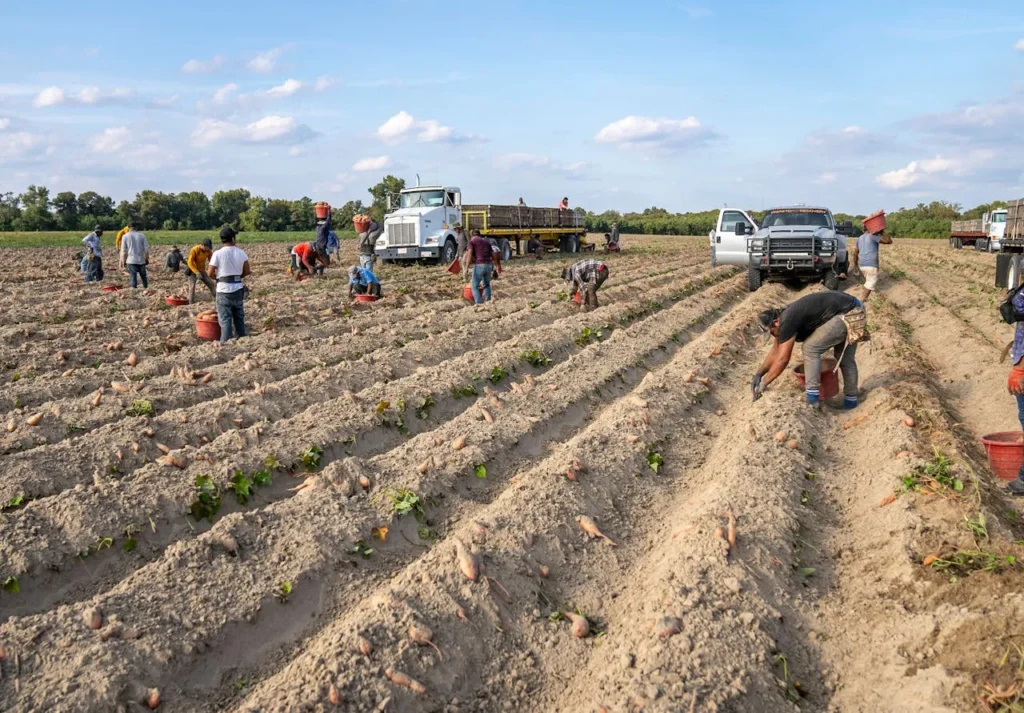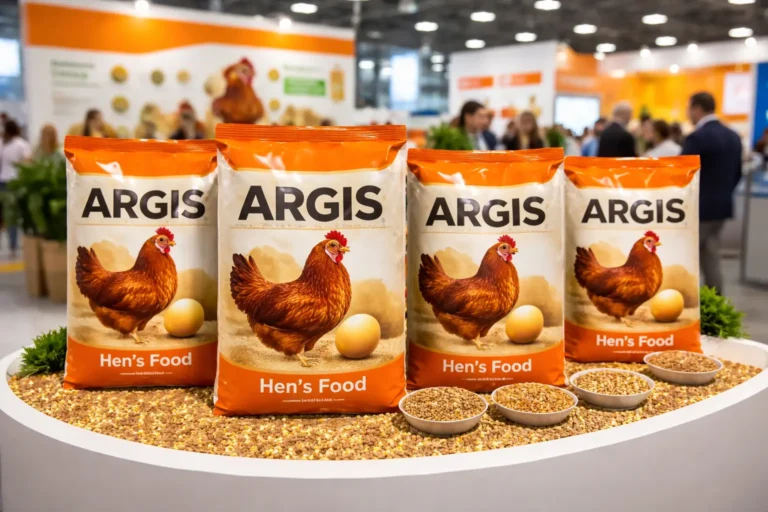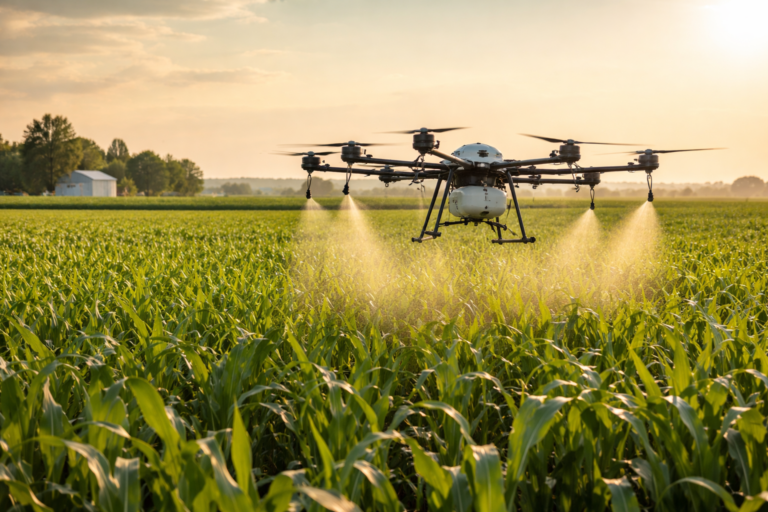
Advancing Eco Agriculture Teams Up with Edacious to Drive Regenerative Farming Forward
Advancing Eco Agriculture (AEA) and Edacious have officially announced a strategic collaboration designed to accelerate the adoption of regenerative agriculture practices through advanced, data-driven insights and groundbreaking food quality measurement technologies. This partnership reflects a shared vision: to transform the food system by linking soil health and farming practices directly to the nutrient density of food and, ultimately, human health.
At its core, the collaboration merges AEA’s decades of agronomic expertise and farmer-centered regenerative tools with Edacious’s ability to measure and validate the nutritional outcomes of those practices. By aligning regenerative farming methods with measurable improvements in food quality, the two organizations hope to create a model where farmers are rewarded not only for the quantity of their harvests, but for the quality and ecological benefits of their stewardship.
A Shared Mission to Redefine Agriculture
AEA has long been a recognized leader in regenerative agriculture. Founded nearly twenty years ago, the organization has built its reputation on empowering farmers with knowledge, science-based solutions, and practical tools to restore soil health, increase crop vitality, and improve resilience on farms of all sizes. Its approach has been rooted in the belief that agriculture, when practiced regeneratively, can serve as a powerful force for ecological restoration and human well-being.
Edacious, on the other hand, brings a complementary focus: quantifying the nutritional integrity and safety of food products. Through its advanced lab technology and software platform, Edacious can provide detailed analyses of food nutrient density, food safety indicators, and shelf stability. Importantly, its platform contextualizes these results in terms of human health and consumer value, allowing farmers, retailers, and supply chains to communicate clearly about the tangible benefits of regenerative practices.
Together, the two organizations are bridging a critical gap between agronomy and food science. While regenerative agriculture has long promised healthier soils and more nutrient-dense food, measuring and validating those claims at scale has remained a challenge. This partnership creates the framework for making those benefits visible, measurable, and economically rewarding.
Food as Medicine: From Vision to Reality
For AEA’s founder and Chief Vision Officer, John Kempf, the collaboration is the realization of a long-held dream. “We’ve been excited about the opportunity of growing food as medicine since AEA was founded almost twenty years ago,” Kempf explained. “With the ability of Edacious to measure food nutritional integrity, we’ll be able to demonstrate the many ways that regenerative systems can benefit human nutrition and health.”
The phrase “food as medicine” has gained momentum in recent years, as research continues to highlight the direct connection between diet, nutrient density, and chronic health outcomes. While consumers increasingly demand foods that are both nutritious and responsibly produced, farmers often lack the tools to demonstrate the true value of their practices beyond simple commodity measures. Kempf sees this collaboration as the missing link—a way to connect regenerative farming to tangible, health-focused outcomes that matter to families, healthcare providers, and policymakers alike.
Making Food Quality Analysis Accessible
One of the immediate benefits of this partnership is the expanded access to food quality analysis for farmers. AEA growers will now receive a discount on Edacious’s services, significantly lowering the barrier to advanced testing. This means that farmers adopting regenerative practices can validate the impact of their choices not only on soil health but also on nutrient density, traceability, and shelf stability.
These areas are increasingly vital for modern supply chains. Retailers and distributors are under pressure to provide greater transparency around the nutritional profile of their products, while consumers are becoming more discerning about the quality of the food they purchase. By offering farmers tools to connect regenerative methods with measurable outcomes, AEA and Edacious are equipping growers to succeed in this new marketplace.
Elevating Farmers Beyond Commodity Competition
For too long, farmers have had little choice but to compete on the basis of yield and commodity pricing, often with razor-thin margins. Edacious CEO Eric Smith believes that this model undervalues the hard work and environmental stewardship that many growers bring to their operations.
“For too long, growers have had to compete on a commodity basis, with little recognition for the quality of the food they produce,” Smith said. “By making food quality and nutrient density measurable, this partnership helps growers establish a new standard – one where their stewardship and regenerative practices translate directly into the value of their products.”

This shift represents a profound opportunity for agriculture. By differentiating products based on quality and ecological responsibility, farmers can gain access to premium markets, strengthen relationships with buyers, and create stronger financial incentives to continue improving their practices.
Data as the Cornerstone of Regenerative Agriculture
Another central theme of the partnership is the role of data in building credibility and accountability for the regenerative agriculture movement. While regenerative practices are often celebrated for improving soil health and biodiversity, measurable data is essential to validate and scale these claims.
With Edacious’s technology, farmers and supply chains can track improvements in nutrient density, food safety, and shelf life in ways that are scientifically rigorous and easy to communicate. These data points not only strengthen consumer trust but also help shape policy, guide corporate sustainability initiatives, and encourage investment in regenerative systems.
“AEA’s mission is ‘to empower growers with innovative, science-backed tools and solutions to regenerate and revitalize agriculture and food systems,’” said Eric Girdler, CEO of AEA. “The solutions provided by Edacious fit within that mission, and have significant potential to enhance the bottom-line success of our growers.”
By embedding measurement and transparency into regenerative systems, AEA and Edacious are helping create a framework where farmers’ efforts are recognized, validated, and rewarded at every level of the supply chain.
Building a Healthier Future
Ultimately, this collaboration goes beyond just farming or food production—it addresses the broader challenge of building a healthier, more resilient food system. By aligning agronomy, technology, and grower support, AEA and Edacious are laying the foundation for lasting change. Farmers benefit from stronger, more resilient operations. Consumers gain access to more nutritious and responsibly grown food. And ecosystems are restored through practices that regenerate soil and enhance biodiversity.
Together, AEA and Edacious are not simply responding to market trends; they are actively shaping the future of agriculture. Their partnership demonstrates that regenerative farming, when combined with rigorous data and food quality measurement, can transform not only the agricultural economy but also human health and planetary well-being.
As demand for transparency and sustainability continues to rise, this collaboration stands as a model for how innovation, science, and shared vision can accelerate progress. By helping farmers grow healthier food and connecting that food to measurable health outcomes, AEA and Edacious are proving that the future of agriculture is regenerative, data-driven, and deeply connected to human health.





